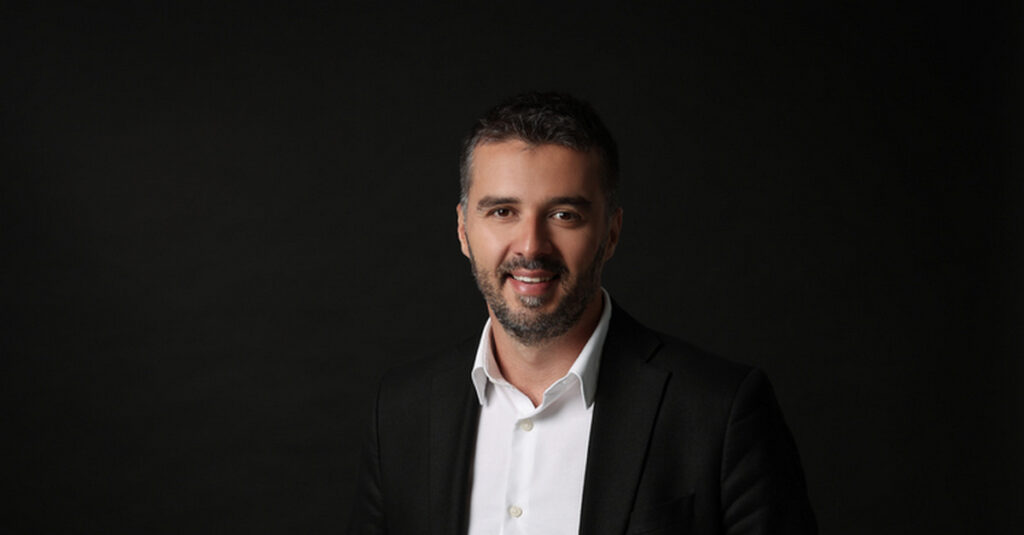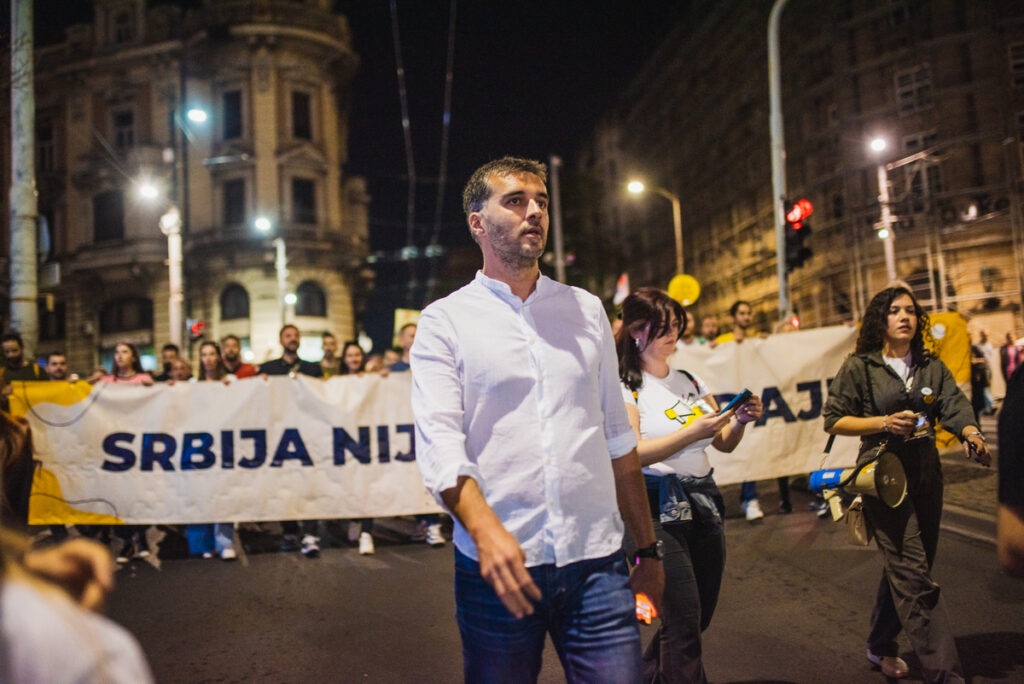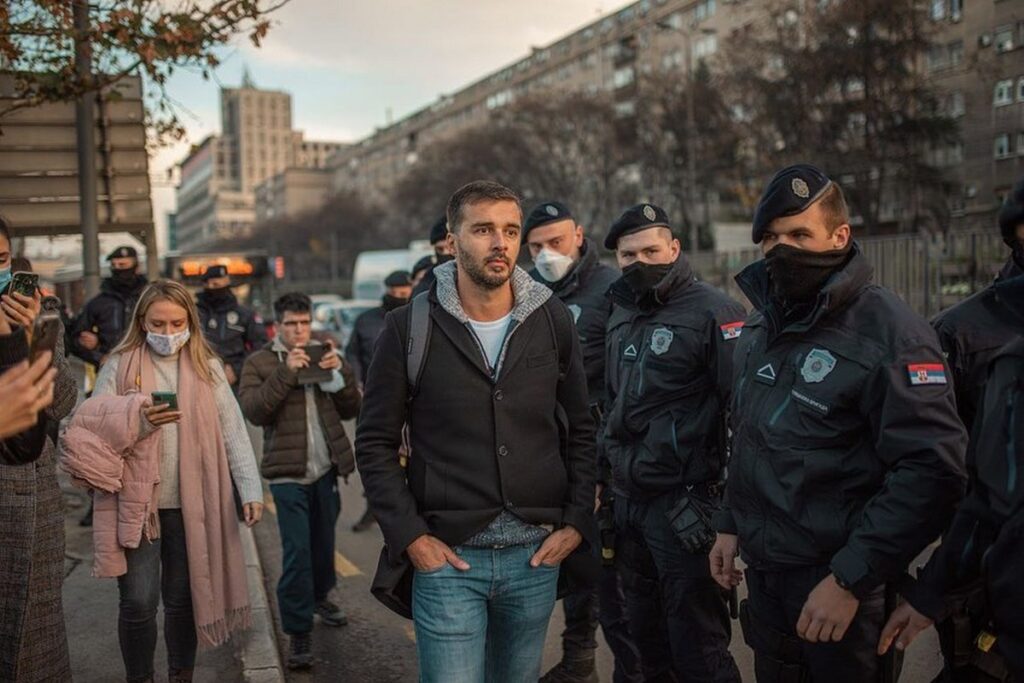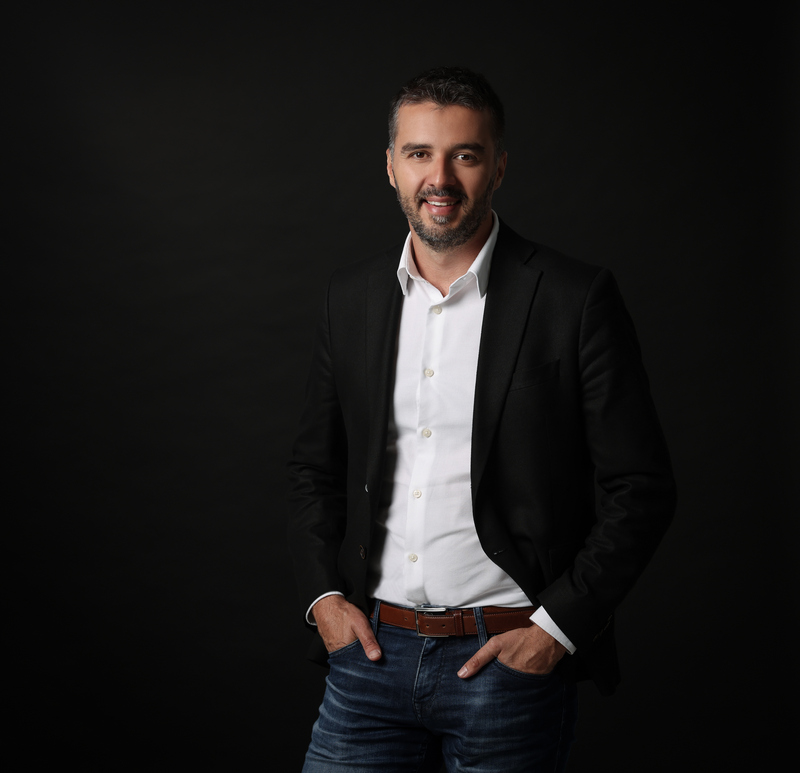On protests, captured institutions, and why Serbia’s future cannot be stopped

FEATURED INTERVIEW
by Dragan Nikolić
Savo Manojlović
Kreni-promeni Movement
Savo Manojlović, leader of the Kreni-Promeni movement, speaks about the growing wave of student and civic protests, the collapse of institutions, and why each new cycle of demonstrations brings Serbia closer to change.
Absolute power means absolute responsibility
You have been the target of physical attacks on several occasions. How do you interpret the fact that political activists and movement leaders are becoming targets? Is this part of a broader strategy to intimidate political opponents?
There have been several attacks. I would single out the one in which I was physically assaulted by a member of the ruling party’s loyalists, an employee of the Government of the Republic of Serbia and an associate of Novak Nedić, who is linked to criminal clans. The attack happened while I was with my eight-month-old son and my wife. After I overpowered him and performed a citizen’s arrest, the police immediately released him. This shows that the authorities have completely captured and abused state institutions. Let me remind you, the man hit me twice and threatened to kill me, and after being handed over to the police, he invoked political protection and showed his Government ID. Despite multiple witness statements and security camera footage, he was immediately released.
This is just one indication that those in power have destroyed the very institutions that should serve all citizens. Such behaviour, however, has backfired on members of that same government. You see, there is a theory of the social contract advocated by Rousseau, Locke, and Montesquieu. Citizens give up part of their freedom so that the state can guarantee security, justice, and dignity. However, when those in power and institutions usurp the state, violate rights and liberties, undermining dignity and endangering security, citizens often take justice into their own hands. Politicians from the ruling party can no longer walk the streets without security, angry citizens come to their homes, and that is the boomerang of chaos they themselves have created.

We are witnessing brutality against students and citizens who have been peacefully protesting for months. Where do you see the end of this cycle of violence, and do the protests have the strength to bring about concrete political change?
In democracies, institutions resolve social conflicts. When institutions fail to do their job, conflicts spill over into the streets. Responsibility for this is proportional to power. Absolute power means absolute responsibility. This government has created chaos, bringing us to a point where each new cycle of protests is larger than the previous one. Protests have their rise, their peak, and their decline, but they also follow a pattern: since the famous blockades of 2021, every wave of protest has been more massive. This government effectively no longer controls Serbian society. That is evident. It is no longer capable of managing the country’s processes.
The government cannot win a battle against the future
Although a state of emergency has not been formally declared, many analysts claim that we are living in a kind of “informal state of emergency.” Is a formal declaration a realistic option, and what consequences would it have?
If we wanted to be a bit ironic, we could say that the state of emergency – just like the President’s “emergency” press conferences (held once a week, lasting an hour each, broadcast by all five national TV stations and 51 cable channels) – has become the regular state of affairs.
In constitutional law, which I study professionally, emergency law refers to the suspension of certain rights and freedoms to protect the constitutional order, institutions, and the state when they are under threat. This government would not introduce a state of emergency to defend the constitutional order, but rather to continue undermining it. Such a restriction of constitutional rights would itself be unconstitutional. And to be frank, the authorities are already trying to suppress and limit constitutional rights even without declaring a state of emergency. They tried to restrict the freedom of assembly by sending thugs against citizens and students who were peacefully protesting. They limit freedom of expression by dismissing and blackmailing employees of public companies. They deny the right to a fair trial by exerting pressure on the judiciary, which is supposed to be independent.
And despite all of this, they have failed to crush the magnificent uprising of a nation fighting for freedom, democracy, and the rule of law. From a formal legal standpoint, I do not expect this government to declare a state of emergency, as it lacks the capacity to enforce it, and doing so would only expose its inability to manage the situation effectively in the country.

How can the democratisation of the electoral process be achieved in a context of total media control and collapsed institutions? Are student and citizen protests enough pressure, or is an additional political strategy from the opposition also required?
The fact that issues in Serbia are not being resolved within institutions shows that those who were supposed to build them have actually captured them. The 2021 blockades, which stopped Rio Tinto and were organised by Kreni-Promeni together with residents of the affected areas, demonstrated three key preconditions:
First, precise and concrete demands that are legally and professionally grounded.
Second, a narrative that transcends religious and political divisions among citizens.
Third, a high level of mobilisation among the people.
All three preconditions have been met in this struggle led by the students. As someone who is involved both practically and theoretically (I work at an academic institute) in organising change, it is clear to me that the government cannot win a battle against the future. Serbia, due to its dismantled institutions, is currently in a state of pre-political development. There is no utopian goal or unattainable demand in this struggle. The citizens of Serbia aspire to a democratic, free state founded on the rule of law and a commitment to combating corruption. We want “boring” institutions that do their job.
Each new cycle of protests is larger than the previous one
What is the role of the opposition in today’s protests, and is there functional cooperation with student organisations and civic initiatives that are driving the protests?
I believe it is fair to speak on my own behalf and on behalf of the movement I am part of. Personally, I try to attend every protest because I believe that engaging in political activism means sharing the fate of the people whose rights are being violated – people who are writing the pages of their own history, and whose struggle will serve as an example of how to fight for freedom.
Kreni-Promeni is a young movement, but among all movements and parties, it has the most developed social media networks, with posts reaching millions of people. Our members are constantly present both on the ground and online, where they transmit messages from all gatherings and thus become part of this magnificent uprising.
As for relations between opposition actors, the principle of Kreni-Promeni is not to discuss those relations in the media, and we stick to that principle.

It seems that international actors (the EU, US, Russia, and China) are reacting rather weakly to the brutality against citizens. How do you explain this, and is there a chance their stance will become more decisive in the coming period?
The President of Serbia tends to tell representatives of Russia and China that the demonstrators are CIA and European agents, and tells the West that the students and his opponents are actually Russian or Chinese spies. There are, of course, channels through which such false information is disseminated.
I believe that countries which fall for such stories – or whose representatives knowingly participate in creating a false picture – lose a great deal in Serbia, above all their reputation among citizens. Regimes fall, but the people are the ones who make up a country. Tying your interests to a corrupt regime that does not control the situation seems shortsighted. In international politics, the most important thing is to be far-sighted. We do not expect international actors to take sides in our domestic politics, but rather to support fundamental principles: free elections, the rule of law, and the will of the majority of the citizens of Serbia.
What is the position of the “Kreni-Promeni” movement at this moment – in relation to the protests, the opposition, and potential elections? How do you view the idea of a unified student list, and would you support it?
According to all polls, whether conducted by the government or the opposition, only the Kreni-Promeni movement, alongside the student list, has no problem passing the electoral threshold. Despite this, we are open to supporting a student list that shows the potential to be a winning formula for changing this regime. According to relevant research, the student list already enjoys greater support than Aleksandar Vučić’s list.